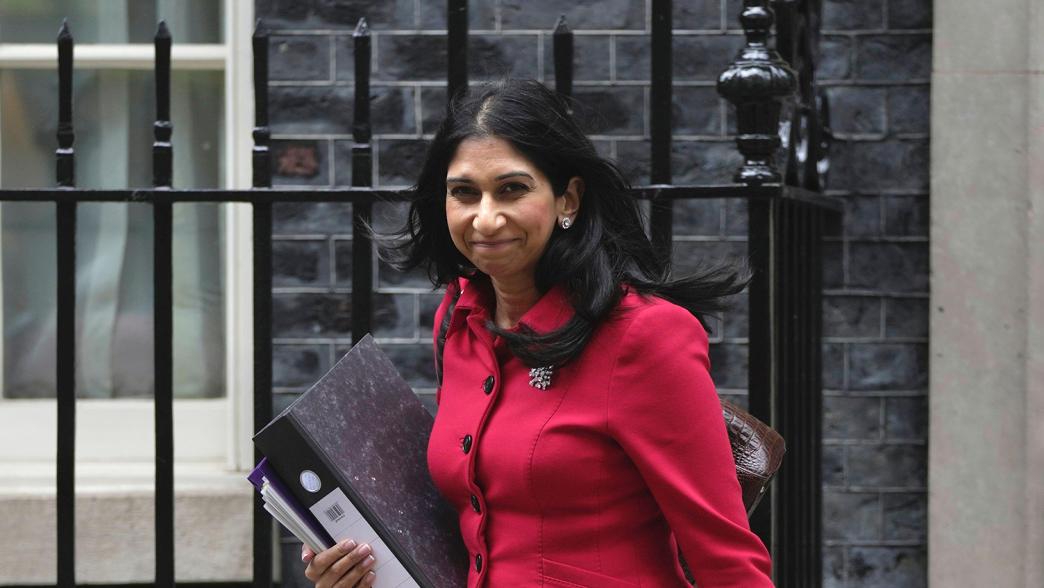The Suella Braverman speeding ticket row risks becoming another Westminster distraction
Another week focusing on a possible ministerial resignation would be a distraction from the real issues.

The home secretary needs to answer questions about what she did and didn’t ask civil servants to do, but another week focusing on a possible ministerial resignation would be a distraction from the real issues, says Tim Durrant
The prime minister has spoken to his independent adviser on ministerial interests, Sir Laurie Magnus, about the home secretary’s behaviour when dealing with a speeding ticket. The opposition used a session of Home Office questions in the Commons to pile pressure on Suella Braverman. And the media is gearing up for another potential ministerial code investigation – and the possibility of the second ministerial resignation in around a month (which would be Braverman’s second resignation in less than a year). But while there are plenty of reasons to question Suella Braverman’s job security, the headline-making drama risks the questions that really matter fading out of view.
Braverman clearly has questions to answer
There are many things that the home secretary needs to explain. Her request to civil servants to help deal with the speeding ticket shows a lack of understanding of the role of the civil service, but if she was just clarifying what they could and could not help with, then this would be far from a clear breach of the code. It is much more serious if she was applying pressure on them to solve the issue for her.
An equally important question is what, if anything, she told her special adviser to say to the Daily Mirror when asked about the speeding ticket. Special advisers are also subject to a code of conduct, which requires them to be honest. If the adviser did not check with Braverman before issuing the denial then that was foolish; and if Braverman explicitly asked her adviser to deny something that was true, then the home secretary should be subject to a disciplinary procedure.
There is also the question of whether Braverman declared the ticket to the Cabinet Office when Sunak reappointed her as home secretary last year. Ministers are supposed to be open about potential embarrassments for the government, so that the prime minister can make a fully informed decision when appointing people.
And Braverman’s actions must be considered in the light of the roles she has held in government – attorney general when the original offence was committed, and home secretary now. Both roles are responsible for upholding law and order and it is particularly embarrassing for the government that it is Braverman, rather than any other minister, who is facing these allegations.
But a focus on the ministerial code risks becoming a distraction
In recent years, the sugar rush of ministerial resignations has become addictive for many in Westminster, with the ministerial code quickly held up by anyone wanting to complain about government behaviour.
But focusing on what Braverman did and did not do over a speeding offence, and what that means for her immediate prospects, risks becoming a distraction from other issues on which she should also be held to account: the failures of the Home Office and her own criticism of government policy. From the charges of “institutional racism, misogyny and homophobia” levelled at the country's largest police force to the much-criticised small boats and Rwanda asylum policies, Braverman’s department is under real pressure on many fronts. And the trouble is set to intensify, with official immigration figures, out later this week, expected to show that the government has yet again missed its objective of reducing the overall number of migrants coming to the UK. At the same time, Braverman herself has challenged ministerial collective responsibility in recent weeks, criticising the government’s own record at the recent National Conservatism Conference. Whether or not Braverman was positioning for a future tilt at the Conservative Party leadership, the prime minister might have expected a senior member of his cabinet to avoid such outbursts.
Sunak should face questions about Braverman – and not just because of her speeding ticket
This is the context in which the prime minister needs to make a decision about Braverman. The row over the speeding ticket may reveal failings on the part of the home secretary, and if she made a mistake then she should apologise. Based on what we currently know, it does not seem enough, on its own, to merit a sacking or resignation. The new ministerial code is clear that resignation is not the only sanction available if a minister is found to have broken the code – and how this story unfolds may yet see the other options in play.
The prime minister should be weighing up his home secretary’s future against how well – or not – she is running the Home Office, and whether he can tolerate her political manoeuvring. Will he ensure the home secretary sets out a clear plan to fix the problems in her department? How will he judge her response to Thursday’s immigration statistics? And does he consider her loyalty above reproach?
These questions matter at least as much as the specifics of what she did and did not ask her officials. The poor performance of the Home Office and the home secretary should be higher up the Westminster agenda than her speeding ticket.
- Topic
- Ministers
- Political party
- Conservative
- Position
- Home secretary Special adviser
- Administration
- Sunak government
- Department
- Home Office
- Public figures
- Suella Braverman Rishi Sunak
- Publisher
- Institute for Government